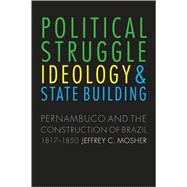
| List of Maps | p. viii |
| Acknowledgments | p. ix |
| Introduction | p. 1 |
| The Portuguese Empire in the Age of Revolution: Pernambuco, 1817 | p. 9 |
| Independence, Regional Rebellion, and the Struggle over the State, 1820-31 | p. 41 |
| Liberal Reforms and the Resort to Arms, 1831-35 | p. 91 |
| Social Control and the Construction of a Centralized State, 1836-43 | p. 121 |
| Political Organization by Pernambuco's Southern Elite and Its Rivals, 1836-43 | p. 138 |
| The Centralized State and Political Polarization, 1844-47 | p. 160 |
| Political Parties, Popular Mobilization, and the Portuguese | p. 185 |
| The Praieira Revolution, 1848-50 | p. 206 |
| Conclusion | p. 249 |
| Notes | p. 255 |
| Bibliography | p. 311 |
| Index | p. 331 |
| Table of Contents provided by Ingram. All Rights Reserved. |
The New copy of this book will include any supplemental materials advertised. Please check the title of the book to determine if it should include any access cards, study guides, lab manuals, CDs, etc.
The Used, Rental and eBook copies of this book are not guaranteed to include any supplemental materials. Typically, only the book itself is included. This is true even if the title states it includes any access cards, study guides, lab manuals, CDs, etc.